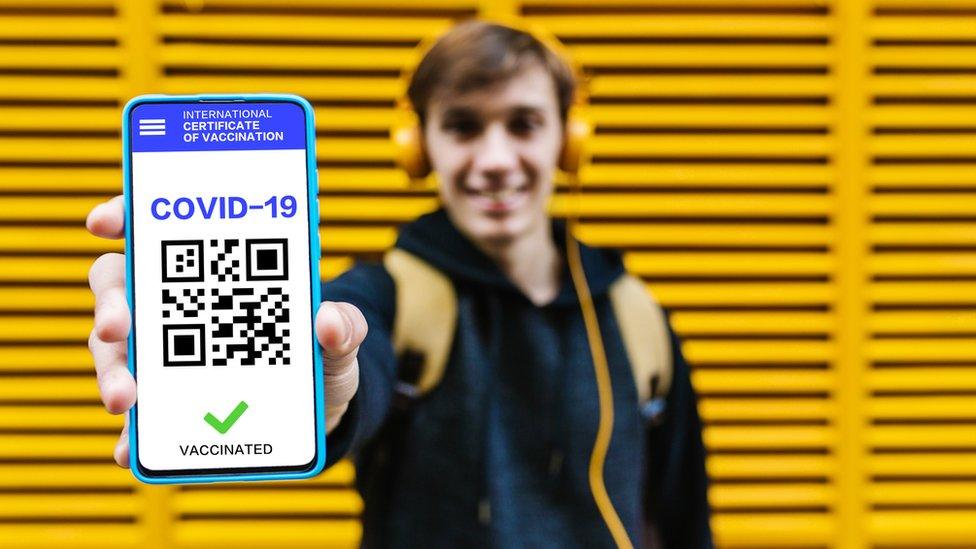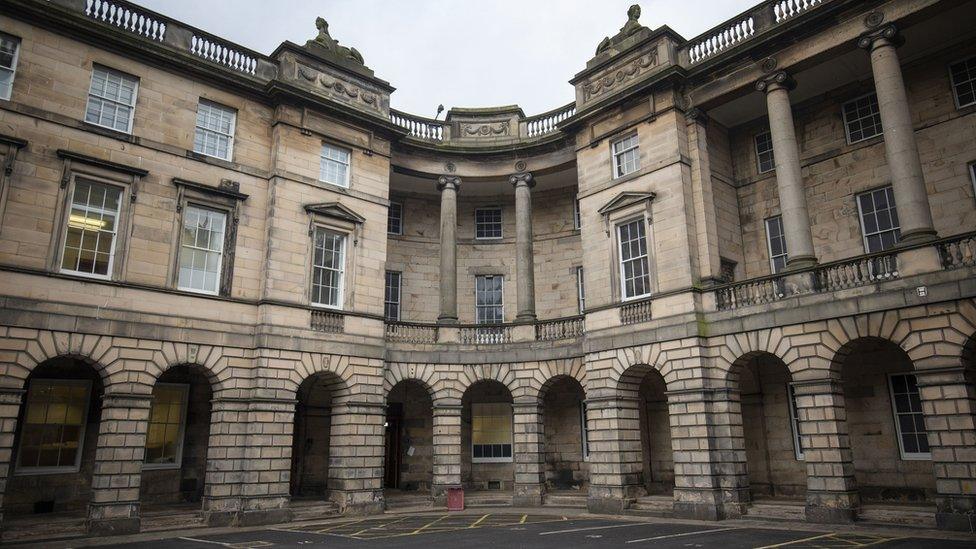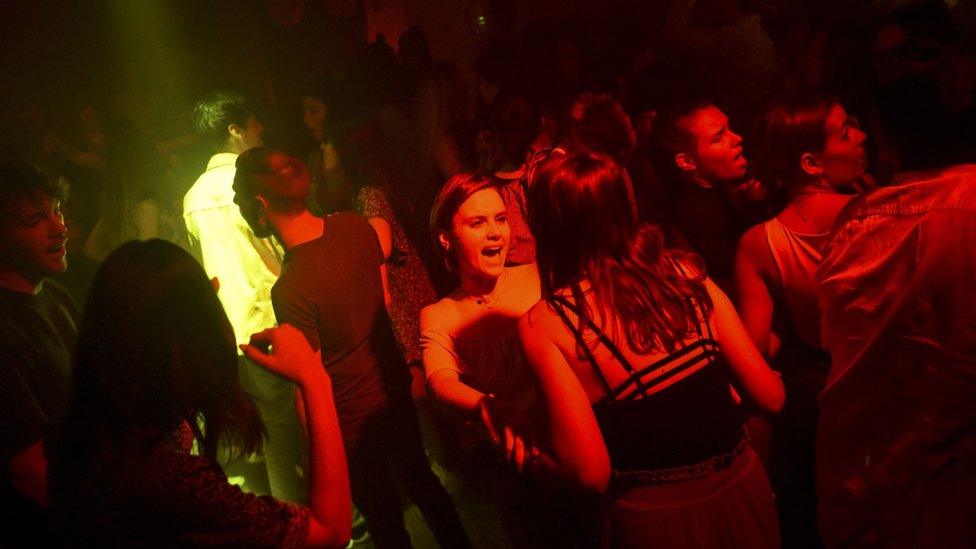Judge refuses to delay Scots vaccine passport scheme
- Published
- comments

Scotland's vaccine passport scheme will start on Friday as planned after a judge refused a legal challenge from nightclubs seeking to delay it.
People will need proof they have had two doses of vaccine in order to enter nightclubs and many other large events.
The industry lodged a legal challenge, saying the system was "discriminatory" and "disproportionate".
But Lord Burns said it was an attempt to address "legitimate issues" of the pandemic in a "balanced way".
Rejecting the legal challenge, he noted that the plans had been signed off in principle by MSPs, and would be subject to frequent review.
The regulations underpinning the scheme will come into force at 05:00 on Friday morning, having been published for the first time on Thursday afternoon.
However the government has said the rules will not actually be enforced until 18 October, to give venues time to test their systems.
The vaccine certification scheme will require venues to put in place a "reasonable system" to check the status of customers over the age of 18, with certain exemptions on medical grounds.
Venues affected include nightclubs, unseated indoor events with more than 500 people, unseated outdoor events with more than 4,000 people, and any event with more than 10,000 people in attendance.
The plans were approved by MSPs despite all three opposition parties voting against them, but the Night Time Industries Association Scotland lodged a legal challenge pushing for a delay.
At the Court of Session on Wednesday, QC Lord Keen - a former Advocate General for Scotland - argued that the system was "discriminatory" against certain venues, and "wholly disproportionate".
He said the status quo should be maintained until ministers could provide a "coherent explanation" for why the scheme was needed, adding that the court should "protect the basic legitimate rights" of the petitioners.
He said ministers were bringing forward regulations "beyond the 11th hour, in the strangest fashion", adding: "The very fact I have had to say within 24 hours of these regulations coming into force that we haven't seen them, is itself redolent of the problem that exists here."

The case was heard at the Court of Session, although it was conducted remotely
For the Scottish government, QC James Mure argued that the scheme had been drawn up at a time when the NHS was under "extreme pressure" due to the pandemic.
He said it was aimed at reducing transmission of the virus and thus alleviating pressure on the health services, to help keep high-risk venues like clubs open, and to encourage greater uptake of the vaccine.
Announcing his decision on Thursday morning, Lord Burns said he did not accept that the petitioners had demonstrated the scheme was "disproportionate, irrational or unreasonable", or that it infringed on their rights.
He said it was "an attempt to address the legitimate issues identified in a balanced way", and was within the margin of what the government could decide was a reasonable response to the pandemic.
While Lord Keen had argued the decision to set up the scheme had been taken without any supporting evidence having been published, Lord Burns said the decision was "made on the basis of principle and broad outline" with details to follow.
The judge said the system was subject to scrutiny at parliament and would be frequently reviewed by ministers, with a specific duty in law to revoke regulations if they are no longer necessary from a public health standpoint.
The Night Time Industries Association Scotland said it was "deeply disappointed" that the scheme would be going ahead.
A spokeswoman said the group would "continue to challenge the Scottish government on this issue" and would take further legal advice on their options.

At Holyrood, Scottish Conservative leader Douglas Ross said the court challenge showed that "everything has been left to the last minute", and that the government "must accept that this is not ready".
He added: "Businesses have never had a tougher time than right now, but they are getting guidance on vaccine passports at the very last minute, and the evidence case for them - if it can be called that - appeared before a Scottish Parliament committee for the first time this morning.
"There are so many flaws littered through this scheme and proper consideration hasn't taken place."
First Minister Nicola Sturgeon said the court judgement was "clear and emphatic".
She said: "This is a targeted and proportionate way to try and reduce the harm the virus will do over the winter months, to keep our economy open and fully functioning.
"We will continue to engage with businesses not just in the runup to the enforcement of this on 18 October, we will do that afterwards as well so we are listening and understanding and working collectively to keep the country as safe as possible."